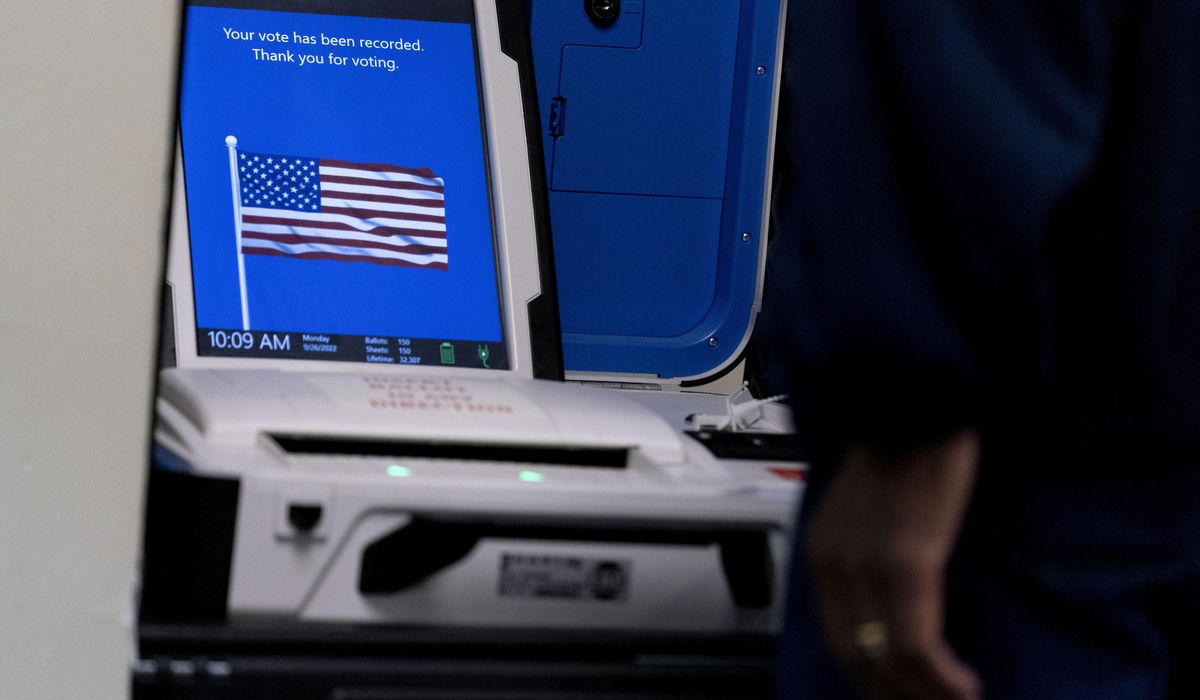


The Department of Justice on Thursday announced lawsuits against six states that have refused to turn over their voter rolls to the federal government, which wants to investigate whether the lists are being properly maintained.
The lawsuits target California, Michigan, Minnesota, New York, Pennsylvania and New Hampshire.
Attorney General Pam Bondi said federal law gives her the authority to investigate how states are maintaining their voter registration lists and she needs access to the lists to carry out that duty. She had sought access, but said the states have each rebuffed her requests.
“Every state has a responsibility to ensure that voter registration records are accurate, accessible and secure — states that don’t fulfill that obligation will see this Department of Justice in court,” Ms. Bondi said.
The lawsuits come on the heels of President Trump’s March executive order instructing his administration to take steps to ensure honest, fair elections.
Federal law requires that states take steps to cleanse their voting rolls — a process known as list maintenance — but conservatives in recent years have questioned how well that’s actually happening.
Those worries have been fueled by reports of voter rolls including noncitizens, pets and double-voting names.
The Justice Department earlier this year requested voter rolls from states across the country. It met with resistance, particularly among Democrat-led states, which balked at turning their data over to the feds.
Most said they believed their own state laws superseded the federal request. Some also specifically questioned what Ms. Bondi would do with the data.
For example, Minnesota told the Justice Department that there was no “legal basis” to comply with the full demand. It also insisted that any data turned over to be extended specific privacy protections. Otherwise, Minnesota said, the federal government could access the same data the public can currently request.
Ms. Bondi says in her lawsuit that a 1960 civil rights law requires states to keep voter records from federal elections and gives the attorney general the power to demand those records. Later laws from 1993 and 2002 also set standards for maintaining voter lists.
The Justice Department earlier this month sued Oregon and Maine for their lists. Those states are resisting.
“Go jump in the Gulf of Maine,” Secretary of State Shenna Bellows said. “It is unprecedented for the Department of Justice to expect that they can get the sensitive personal voter data of every voter in the country.”
At the time, Ms. Bellows complained that the Justice Department had only targeted two Democrat-led states.
That’s no longer the case. Pennsylvania’s secretary of the commonwealth, Al Schmidt, is a Republican and was appointed by Democratic Gov. Josh Shapiro. New Hampshire Secretary of State David Scanlan is also a Republican.
The states have generally offered access to publicly available information, but the Justice Department said that lacks the unique identifiers that states maintain and that federal investigators want to see.
The department says in the lawsuits that it has told the states it is bound by the federal Privacy Act, so concerns over mishandling information are unfounded.
The department also pointed out that many of the states are part of the Electronic Registration Information Center, a private organization that coordinates to remove voters who may be registered in multiple states.
Justice officials said they are seeking the same data states already turn over to ERIC, but each state “refuses to comply with federal law and provide that same information to the attorney general.”
• Stephen Dinan can be reached at sdinan@washingtontimes.com.
